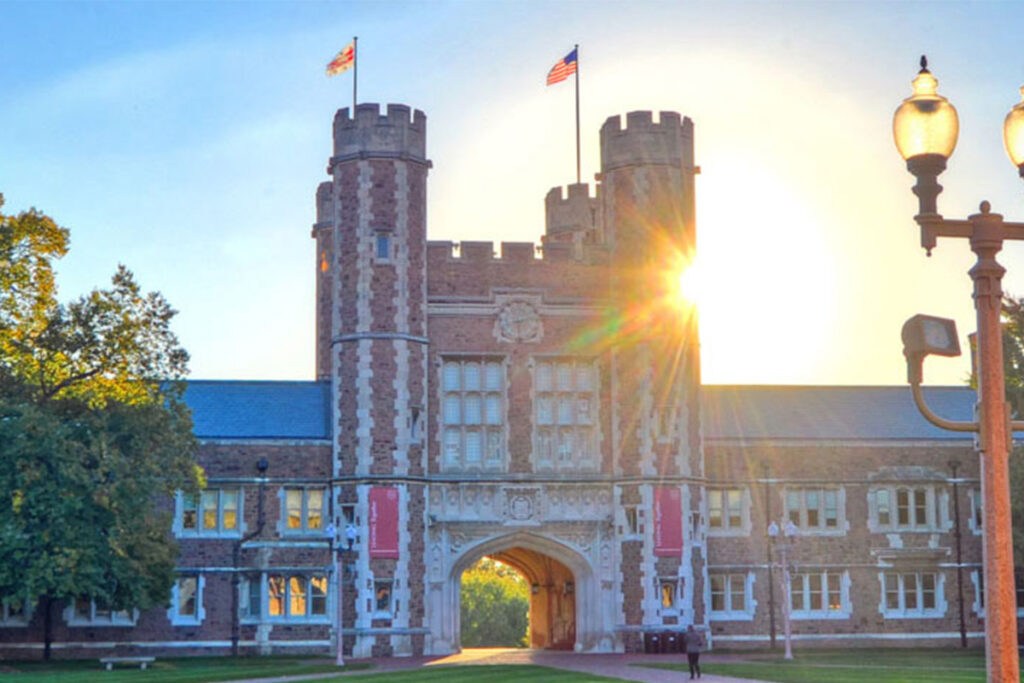Dear members of the Washington University community,
Here we are, the day after yet another contentious election season in the United States. Leading up to this election, many of us held our own hopes and dreams for what this country could or should be. And for many of us, voting serves as a way to project those hopes and dreams onto a specific candidate or initiative. And while some votes are yet to be counted — and need to be counted — during this time of waiting, we know that some will be undoubtedly pleased with the outcomes from yesterday, while others will be vehemently dissatisfied.
Indeed, we are a passionate nation. Though unfortunately, and all too often, our passion has the tendency to mix dangerously with fear and opposition, the results of which are the polarization and divisiveness we’ve come to know throughout the years. What’s more — as we’ve learned this week through the election results that have come in so far, it is clear that we continue to be a deeply divided nation.
There have been times in our nation’s history when we’ve experienced similar levels of fear and divisiveness. There was the Civil War and the emancipation of slaves. The Great Depression and World War II. The Vietnam War and Civil Rights Movement. The societal effects of 9/11. The aftermath of the killing of Michael Brown, Jr. and the countless other Black people who have lost their lives to racial violence since then. And of course, here we are embroiled in yet another culture of division in the midst of COVID-19, ongoing racial injustice, and other matters of international importance.
As these examples elucidate, history has proven that times of conflict and uncertainty tend to bring out both the best and worst in humanity. But in this moment — and as members of a community rooted in our mission to improve lives — I challenge each of us not to let this week bring out the worst in us. Instead, let this week bring out our best.
No matter our feelings about the outcomes of the election, I challenge each of us not to let fear and opposition overcome our passions, conversations, and actions. I challenge us instead to look at our relationships and civic responsibilities with fresh eyes and new perspectives. I challenge us to rise above the polarization and divisiveness and instead to find opportunities to respectfully dialogue across our differences and relate to one another with grace, empathy, and compassion. I challenge us to look beyond ourselves and focus on the greatest needs within our communities. And I challenge us not to think about progress finitely in terms of elections, but rather infinitely in terms of our human potential and the role we play as citizens of the world. Because, as we know, our civic duty is more than a checkbox every two and four years. It’s what we do and how we act on a daily and weekly basis that helps engender the changes we wish to see.
As Chancellor of this great institution, I am profoundly grateful that we are a community capable of living out these ideals. I can say this with confidence because I’ve seen it in action. Ours is a community comprising students, faculty, and staff from highly diverse backgrounds and experiences. This is one of our greatest assets and a mark of distinction, and in times of uncertainty, we have proven capable of using moments like these, not to denigrate or drive wedges, but rather to come together to seek understanding, knowledge, and truth. This is what it means to live out our WashU mission, and I hope we do just that today, tomorrow, and well into the future.
While addressing Congress in 1862, Abraham Lincoln said, “The dogmas of the quiet past are inadequate to the stormy present. The occasion is piled high with difficulty, and we must rise — with the occasion. As our case is new, so we must think anew, and act anew. We must disenthrall ourselves, and then we shall save our country.”
Lincoln’s words continue to be profoundly true for us today just as much as they were true when he first spoke them. And now, let us channel that energy as we work together and across the aisle to make our world a better, more just, and more equitable place for all to live.
